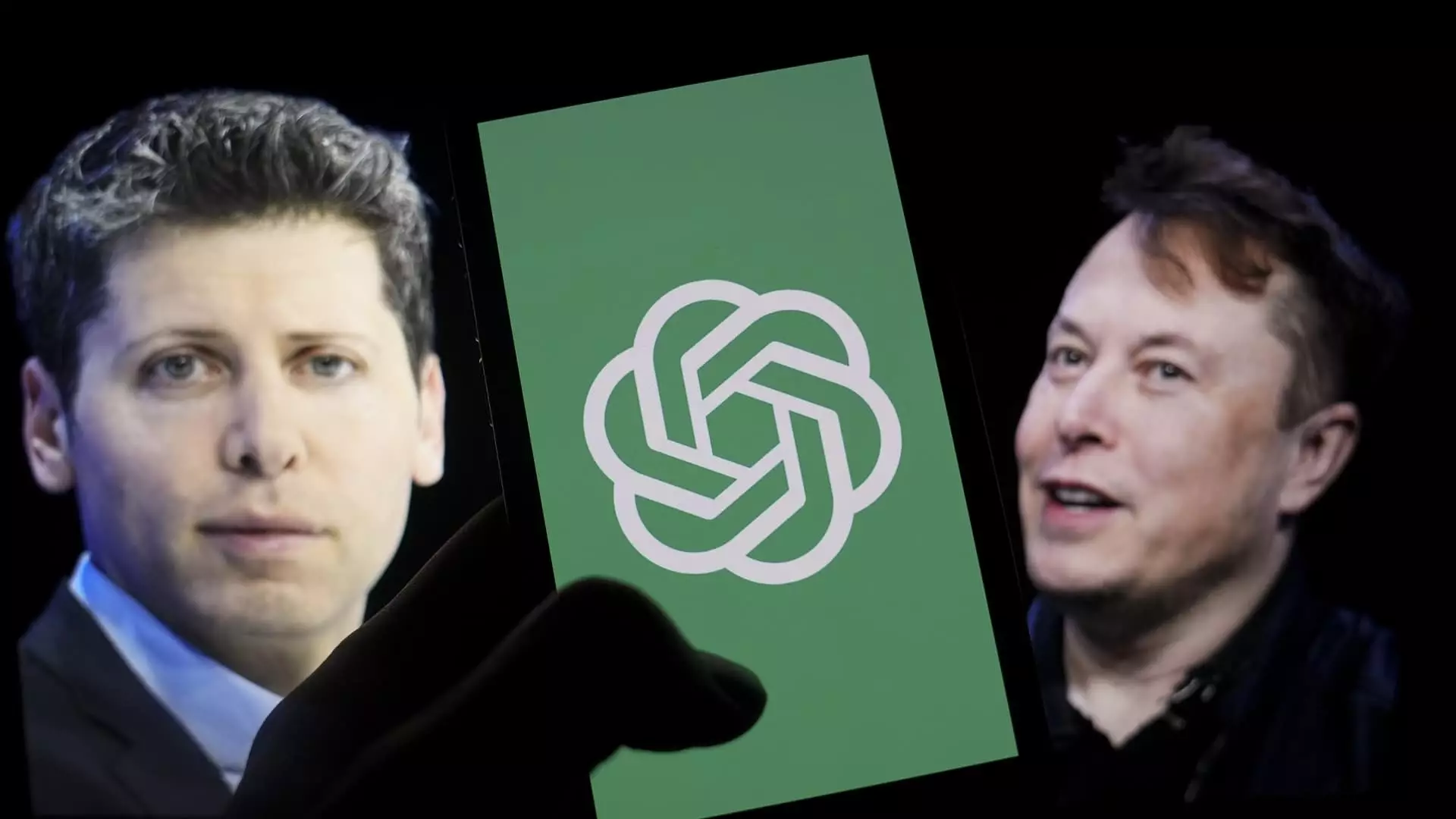Elon Musk, the enigmatic entrepreneur known for his diverse ventures, has ignited a significant legal battle against OpenAI, the nonprofit organization he once co-founded. His latest move, a request for a federal court to enjoin OpenAI from transitioning to a fully for-profit business model, reflects not just a personal grudge but a broader concern over the competitive landscape of artificial intelligence (AI). Musk’s allegations encompass infringement of racketeering laws and potential antitrust violations, entwining major tech players like Microsoft and investigative scrutiny from federal agencies.
Musk’s legal team filed for a preliminary injunction, aimed at halting OpenAI’s proposed operational changes and curbing its alleged tactics to suppress competition through investor agreements. This request compounded earlier lawsuits Musk initiated in a San Francisco state court, which he later retracted before re-filing in a federal jurisdiction. At the heart of the court documents lies Musk’s contention that OpenAI, alongside its powerful ally Microsoft, has engaged in behavior detrimental to rivals by mandating that investors refuse to support competing entities like Musk’s own AI venture, xAI.
The legal filings state that OpenAI’s actions may classify as a “group boycott,” which could significantly hinder xAI’s access to necessary funding, thereby stifling innovation in a rapidly evolving sector. Musk’s legal representatives have emphasized the potential dangers of allowing OpenAI to operate under such terms, arguing it permits them to unfairly exploit sensitive competitive data accrued over the years.
In stark contrast to Musk’s legal claims, an OpenAI spokesperson has dismissed the accusations as lacking substance, indicating that Musk’s ongoing legal actions are merely a rehash of previous assertions. The response illustrates the heated atmosphere within the AI sector, where competition is escalating and the stakes are unprecedentedly high. OpenAI stands as a leading enterprise, evidenced by the rapid growth of its flagship product, ChatGPT, which has reshaped corporate investment in AI technologies.
As Musk’s xAI enters the fray with ventures such as the Grok chatbot and ambitious funding drives projected to reach $6 billion, the impending clash showcases the fierce rivalry amongst corporations in the AI field. The implications of this legal battle extend beyond Musk and OpenAI, highlighting the broader dynamics of a marketplace grappling with innovation and competition under high-stakes capitalism.
Musk’s accusations that OpenAI and Microsoft may be colluding to stymie competition have caught the attention of regulatory bodies. The Federal Trade Commission (FTC) has initiated a probe into how collaborations between major cloud service providers and AI firms—OpenAI included—affect market dynamics. This scrutiny reflects a growing recognition of the need to supervise how competitive relationships in tech manifest, especially given the burgeoning $1 trillion generative AI market forecasted for the next decade.
This evolving regulatory landscape poses significant challenges for corporate giants like OpenAI and Microsoft. Notably, while Microsoft recently offloaded its observer seat on OpenAI’s board, the FTC continues to watch closely, sorting through the intricate web of affiliations and financial agreements that could potentially skew market fairness. This intervention entails a strategic pivot not only for the entities involved but also for the overarching governance of AI technologies in the broader marketplace.
Transforming from its original nonprofit model to a profit-centric enterprise, OpenAI’s evolution underscores a fundamental shift in how AI ventures are financed and operated. Originally established in 2015 as a nonprofit, the organization has gradually transitioned into a capped-profit model, aiming to attract more substantial investment while retaining some semblance of its philanthropic roots. The recent bid to restructure into a fully for-profit public benefit corporation signals an effort to maximize investor appeal and financial returns at a time when competing organizations, such as Google and Anthropic, are vying fiercely for market dominance.
These adjustments are indicative of the transformative potential of AI technologies and the urgency that companies feel to secure funding in a rapidly shifting landscape. Yet, Musk’s challenges against OpenAI highlight the potential ethical conflicts inherent in prioritizing profit over principle within such a consequential industry. As AI systems increasingly penetrate social fabric and influence everyday life, questions regarding corporate responsibility, competitive ethics, and regulatory oversight become far more pressing.
The legal battle between Musk and OpenAI encapsulates a critical moment in the evolution of the AI landscape. It frames broader discourse on competition, corporate ethics, and regulatory oversight in an age defined by rapid technological advancements. As these tensions unfold, it may set precedents impacting the future governance of AI, shaping not only corporate strategies but also the trajectory of innovation feeding into society. Whether Musk’s legal strategies will yield substantive changes remains to be seen, but what is undeniably clear is that the battle for the future of artificial intelligence is heating up.


Leave a Reply